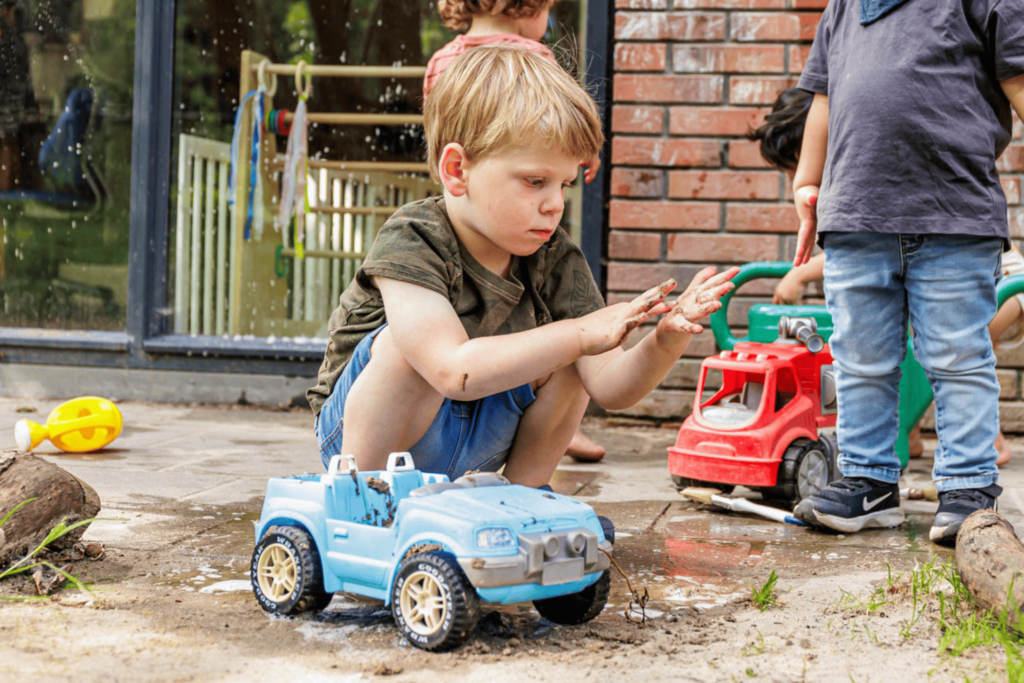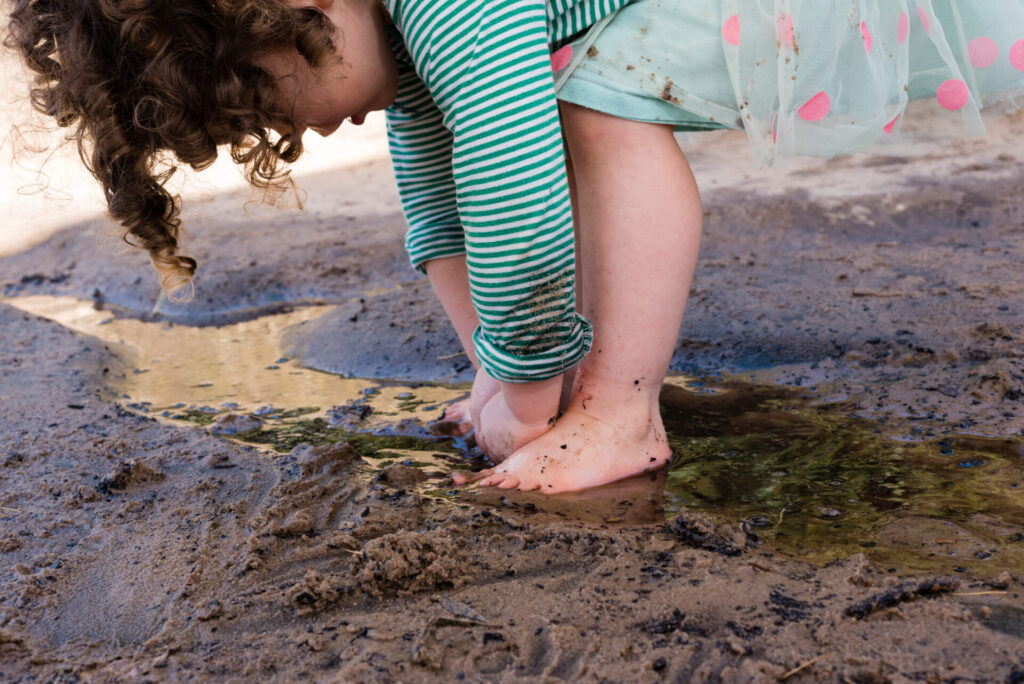
Mud Day: getting dirty is allowed!
Mud Day is celebrated at KinderRijk every year. And this year we are even turning it into Mud Week: from 23 to 27 June 2025. Mud Day (or Mud Week) is not about staying clean. On the contrary! All the children at KinderRijk get to explore, feel, mess about and enjoy mud soup and sandcastles.
While you may not feel quite comfortable with the sight of muddy trousers and dirty hands, something miraculous happens: it makes your child grow stronger. Literally and figuratively. How? Let us tell you how that happens.
Using your body to learn
Running through mud, jumping over puddles, crawling through wet sand… It looks like just fun, but there is much more going on. Your child learns from this type of play. Moving in the mud trains your child’s body, muscles grow stronger, the balance improves. Your child learns to move without trouble in all kinds of situations. Playing in the mud (on Mud Day as well as all other days of the year) strengthens motor skills in a natural and fun way.
Children use all their senses in mud play, which is a form of sensory play. From scooping and pouring to kneading and sliding, all these movements train muscles and coordination. These are essential building blocks for future skills, such as writing, using scissors and getting dressed. In short, it stimulates the sense of touch and promotes fine and gross motor skills.

Mud fun, for every age
Babies’ adventures start early. When they push their fingers into mud or sand for the first time, they practise their sense of touch and fine motor skills.
➡️ Baby Milan (9 months) is crawling along a muddy path. Each movement strengthens his body muscles and helps him learn to stand and walk.
➡️ Toddler Noor (13 months) is screaming with laughter as her feet slip in wet sand. She tries to keep her balance and subconsciously trains her muscles, balance and coordination.
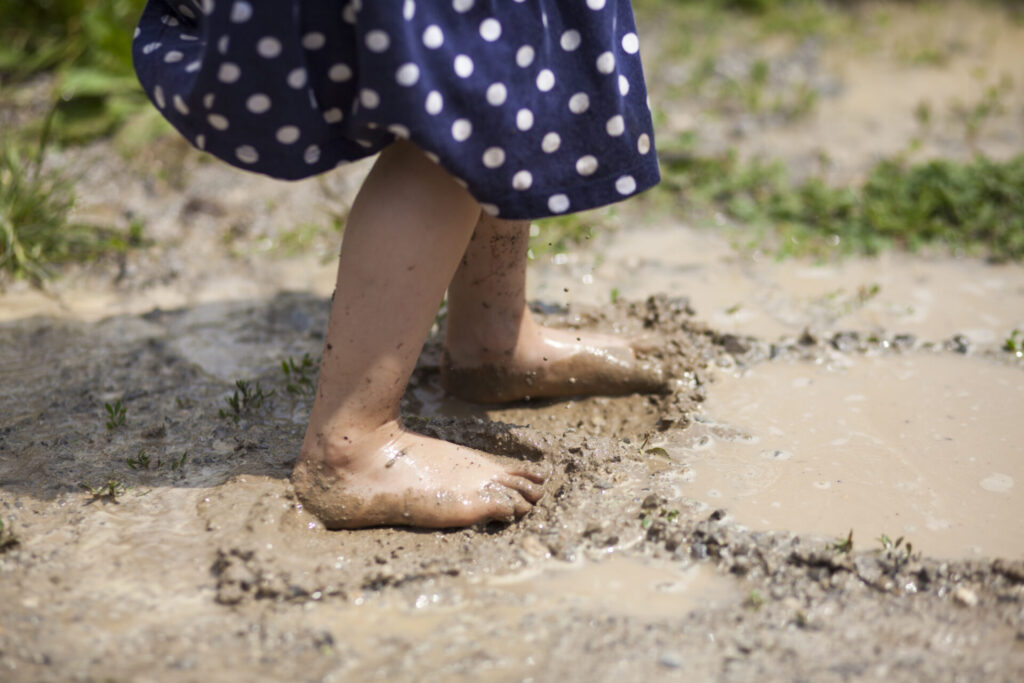
Toddlers and preschoolers often take it one step further. They scoop, pour, build and experiment. For example, while making mud cupcakes in pans, or making tracks with branches and toys.
➡️ Toddler Omar (2.5 years old) is filling a bucket with sand, water and leaves. He pours, spills, tries again. Fine motor skills are in action here.
➡️ Toddler Emma (aged 4) rolls mud balls and stacks them like turrets. She exercises her eye-hand coordination, develops her own creativity and problem-solving skills.
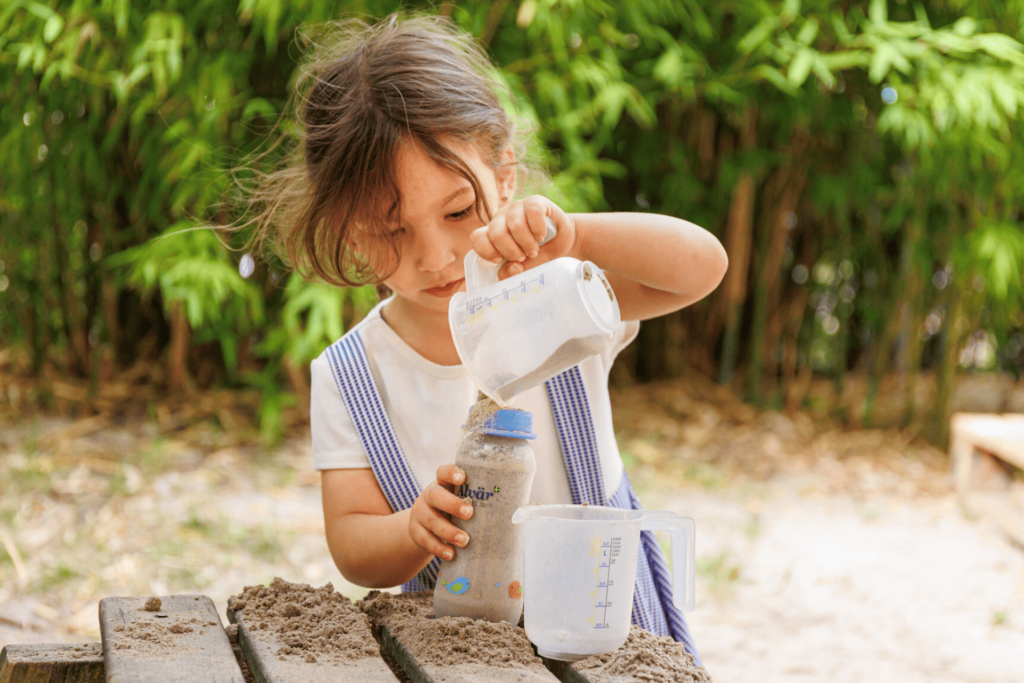
Cooperation, imagination and body control are gradually more often practised as children grow older.
➡️ Tijn (aged 8) and his friends are building a mud dam in the sandpit. They discuss, divide tasks and drag water along. Unnoticed, they are training both their muscle power and social skills.
➡️ Amina en Maryam (aged 11) are building a mud trail. Climbing, jumping, balancing: their entire bodies are used and strengthened, as are their bonds of friendship.
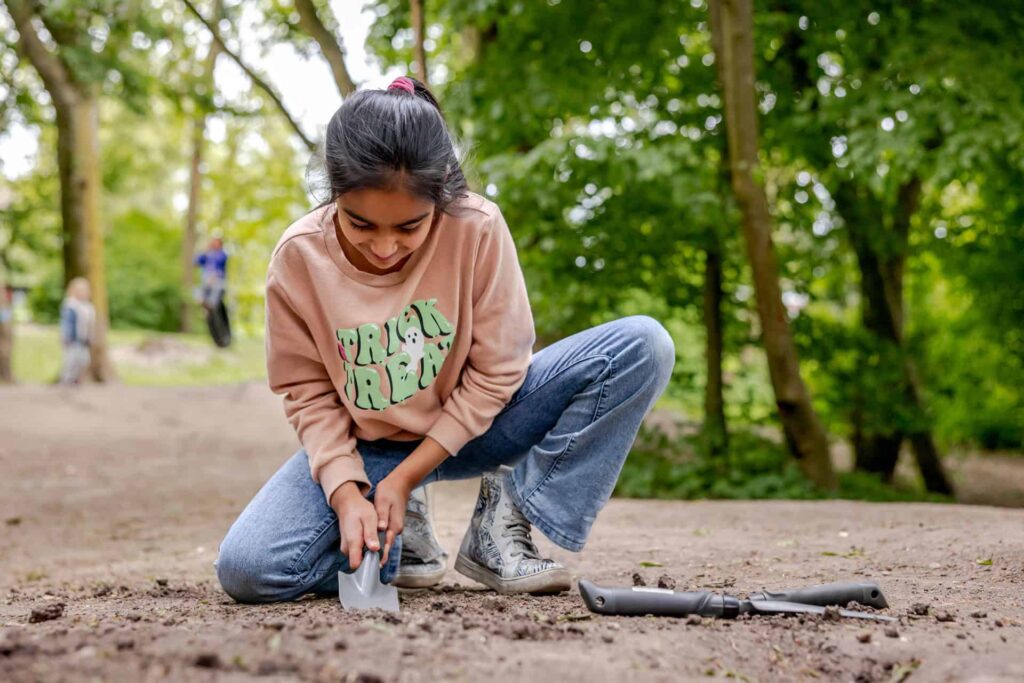
Mud makes resilient
Millions of harmless micro-organisms live in mud, which is exactly what helps children build a strong immune system. Children who often play outside – and are not immediately cleaned up after every stain – are less prone to allergies and infections later on in life. So yes, getting dirty benefits the immune system!
Moreover, playing outdoors contributes to less stress, more creativity and greater self-confidence. A child who is allowed to explore, experiment and get dirty feels free and learns to assess risks.
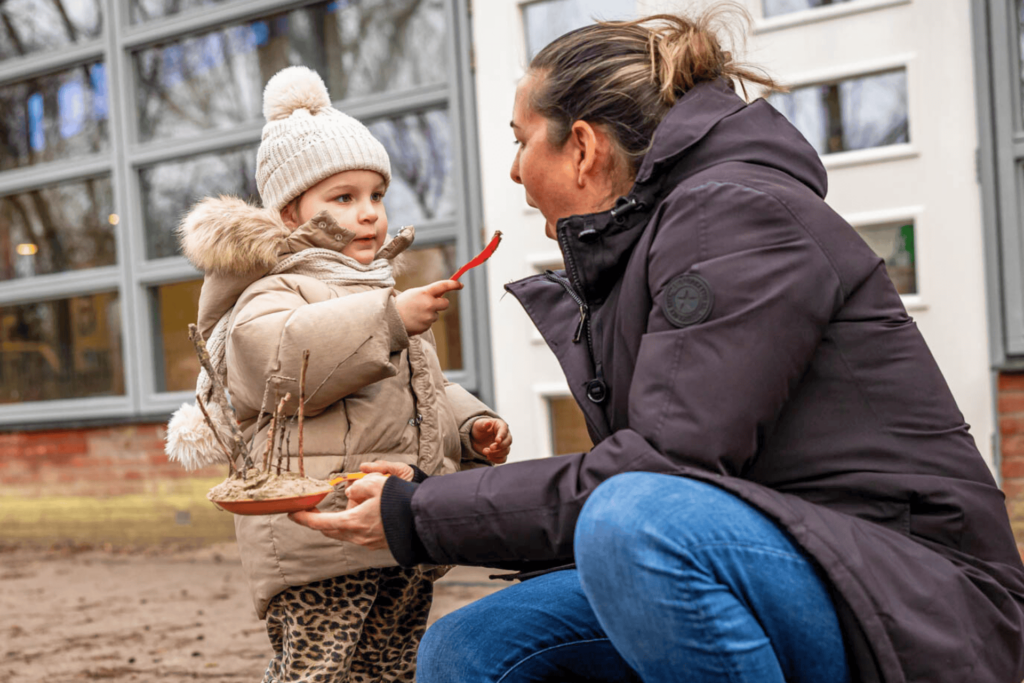
Mud Day at KinderRijk
During our Mud Day (or Mud Week), we make our outdoor spaces adventurous with earth, sand, water and other natural materials. Each child gets to join in by doing what he or she feels like doing: crawling, building, stomping or just feeling quiet. We provide safety, a cleaning cloth and clean clothes afterwards.
What will you see when you come and pick up your child? Perhaps some mud smudges and dirty socks. Maybe some sand in the hair. And most definitely: a happy face, a healthy body in motion and stronger immune systems.
In short: getting dirty is allowed. On Mud Day and every other day!
